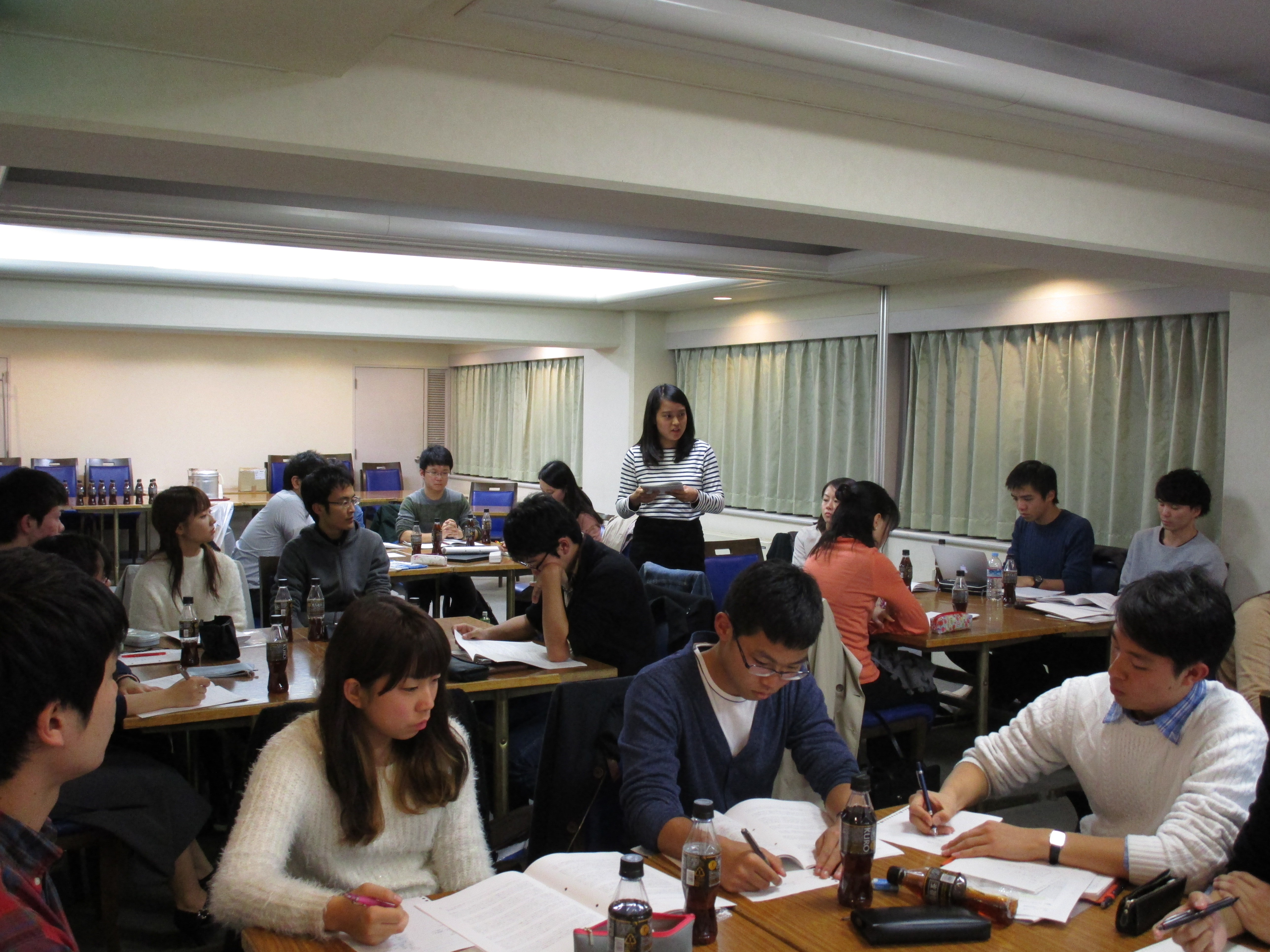- HOME
- Activities
- Forum List
- Forum Details
Nov.12.2016 KIP Forum “Leadership(based on a case study used in Harvard Business School)”
Mr.Ninami Takeshi, the president of Suntory Holdings Limited

Mr. Takeshi Ninami: He graduated from Keio University in 1981. And after he entered Mitsubishi Crop, he got MBA in Harvard Business School in 1991. After he got back to Japan, he became an advisor of Lawsone. In 2005, he became a president and CEO of Lawsone. In 2014, he entered Suntory Holdings Limited as a president till now.
We, KIP, invited Mr. Ninami- the president of Suntory Holdings Limited- to November forum as a lecturer, and ask him to have a lecture about leadership based on a case study about a distress accident occurred in Everest in 1996 which was used in Harvard Business School.
At first, Mr. Ninami asked us “Reading this textbook, is there anyone who think ‘I want to go to Everest?”
This textbook is about an accident occurred in Everest, so there was no one who wanted to
go there. During the lecture, he asked us many questions. Especially, we were divided over
a question that “In the mountaineering parties in this textbook, they let the leader decide
everything, then was it right or not?” Some people said that a leader should declare his
opinion as a right choice, while some people said a leader should listen to other people’s
opinion. When Mr. Ninami asked “Why didn’t Hall and Fischer (leaders in the
mountaineering parties in the textbook) decide to give up climbing Everest?”, there were
opinions like “They wanted to show their decision was right.” “They couldn’t make a right
decision in a harsh environment.” “They couldn’t give up because of their client’s
enthusiasm.” Then Mr. Ninami told us that there weren’t right decisions. Though it seems to
be easy to find a right decision for a third party , it is very difficult to make a right
decision in a harsh environment. Also, he said to us “There are two types of leader. One is
a person who decides everything on their own and the other is a human who let other
people talk about their opinion. There isn’t right answer, so I want everyone to think which is
a good leader for ourselves.” In addition to that, there isn’t perfect structure, and what a
leader should do is to make a structure close to perfect. Then he started to talk about his
opinion. In his opinion, a leader should make final decision but he should listen to other
people’s opinion and let them discuss. He also said human resource and courage was
important in listening to other people’s opinions. Based on his opinion, he told us two
examples. One is about a basketball team he belonged to when he was in high school. His
team was defeated by a team which he thought was much weaker than his. He said “We
were defeated because we didn’t listen to opinions of players in bench though they had
different perspective from players.” The other is about Nobunaga Oda. He was a great
military commander but he failed to unite Japan because he relaxed his guard. It is very
difficult to keep modesty and not to be arrogant. In addition, based on the textbook, he said
that though there were a lot of accidents in Everest, they couldn’t stop the accident
happened. According to this, he emphasized how difficult to learn from failures is. Humans
don’t learn from failures which were made in history. What is more, we don’t want to admit
our failures and learn from them. However, what we can learn from failures is more
important than what we can learn from success. Also, whether we can learn something
from failures depends on ourselves and the environment we are in. In other words, what we
can learn depends on whether we can face our failures and accept other people’s opinion
and other people will accept your failures. One more thing he told us strongly was that
charm was necessary for a leader. He quoted the president election of the U.S. as an
example.
Next, we went into question time. Mr. Ninami emphasized the importance of listening to other people’s opinion and he also said he wanted young people to go outside and not to be too defensive in his answers to questions. After that, we had discussion, and the topic was “If you were Hall or Fischer, what would you do?” Many groups stated, “It was not clever to take care of all sick clients by himself” “They should give up when the schedule was late.” “They should make other clients obey the rule” On the other hand, some groups could not make consensus about whether they should take in sub-leaders’ opinion more. Through this discussion, we could realize that each person’s opinion about ideal leader is different.
At last, I would like to appreciate Mr. Ninami, who understands various opinion about leader and gave us a good opportunity to think about leader. It was not only a good opportunity for us to learn, but also to rethink about ideal leadership. Thank you so much, Mr. Ninami.
(Tokuyu Ko)

